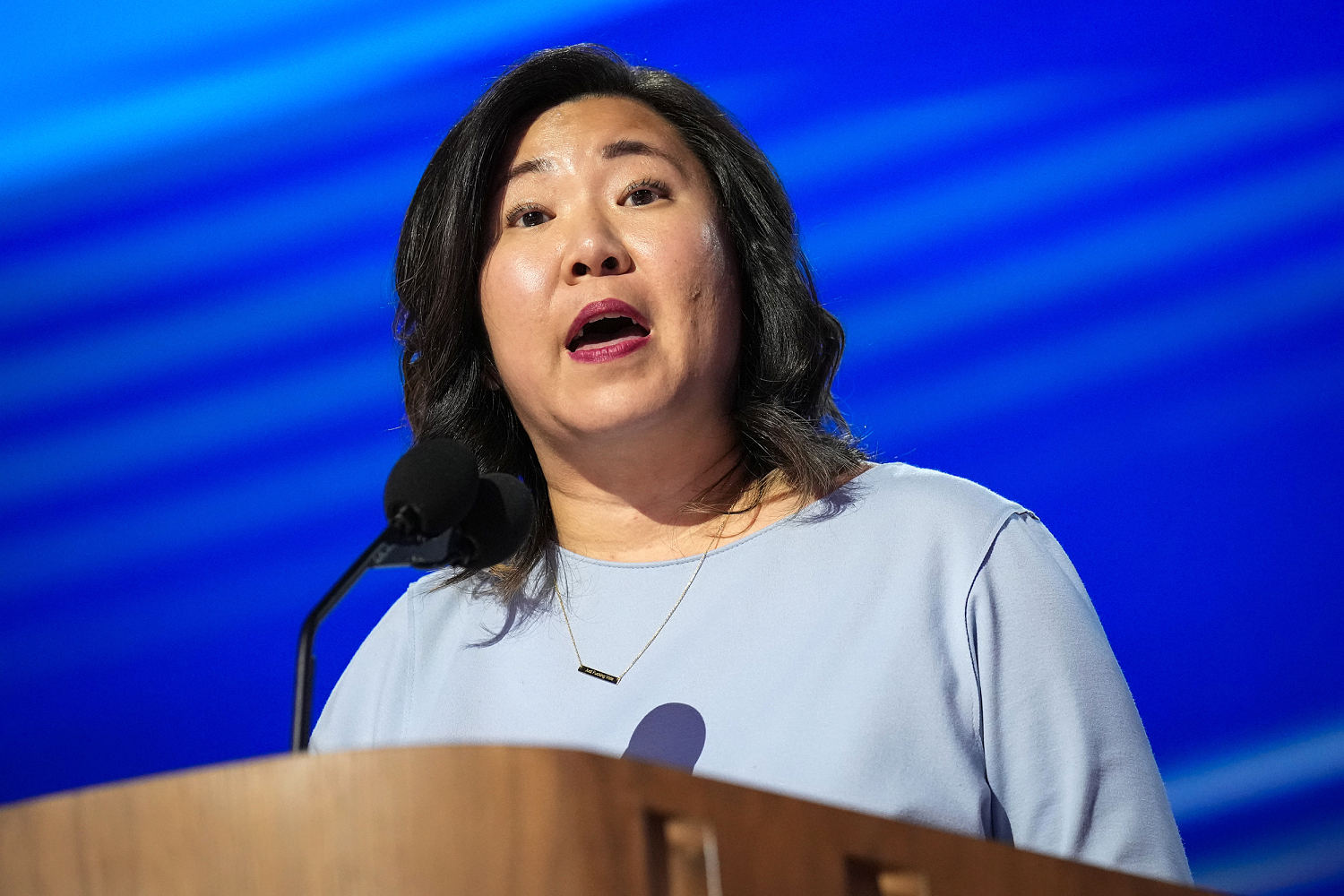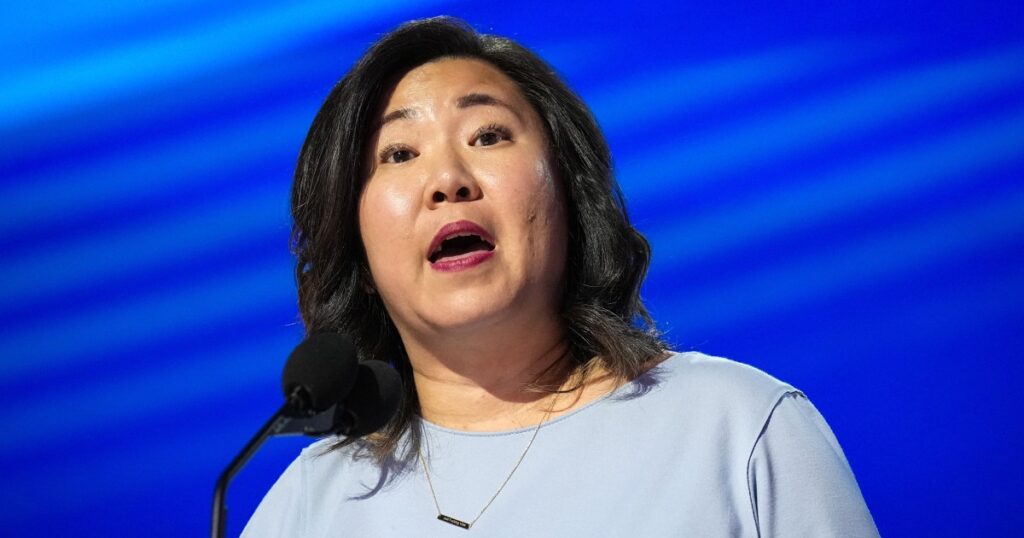
WASHINGTON — Rep. Grace Meng, D-N.Y., on Wednesday will become the new chairwoman of the Congressional Asian Pacific American Caucus, succeeding Rep. Judy Chu, D-Calif., who has held the post for more than a dozen years, Chu told NBC News on Tuesday evening.
Meng, who has served in Congress since 2013, is running unopposed to replace Chu as chair of the caucus, which is known as CAPAC. The internal election is set for later Wednesday.
Meng is CAPAC’s “first vice chair, so basically she has been put in a position to be able to take over, and I think she’ll do a great job,” Chu said.
CAPAC is the smallest of the Tri-Caucus, the three minority caucuses that also include the Congressional Black Caucus and the Congressional Hispanic Caucus. It has been an important voice on such issues as combating xenophobia and anti-Asian hate incidents (which spiked during the pandemic), pursuing immigration reform and promoting language access in government programs for people with limited English proficiency.
While the leaders of the Black and Hispanic caucuses typically rotate every two years, CAPAC does not have term limits. Chu — the former three-time mayor of Monterey Park and the first Chinese American woman to serve in Congress — had led the caucus since 2011.
Chu said CAPAC members will soon consider whether to impose term limits for future chairs of up to four years, given that there are more members now who are looking for opportunities to lead.
As chair, Chu, 71, shepherded a resolution through the House expressing regret for the lower chamber’s passing the Chinese Exclusion Act of 1882 — a law that barred Chinese citizens from becoming naturalized American citizens or immigrating to the U.S.
And under Chu’s stewardship, CAPAC expanded and successfully pushed to elect its members to leadership posts. Rep. Mark Takano, D-Calif., was elected chairman and ranking member of the House Veterans Affairs Committee. And Rep. Ted Lieu, another Southern California CAPAC member, became the first Asian American to be elected to House leadership when he won the Democratic caucus vice chair job in 2022.
Chu noted the growing number of Asian American, Native Hawaiians and Pacific Islanders (AANHPI) in Congress since she came to Washington.
“When I came, there were nine AANHPI members of CAPAC. As of this election, with our additions, we’ll have 25, so this is a major accomplishment,” Chu said just off the House floor. “And I would say that we have fought to be visible and to be part of the leadership of this Democratic caucus, and we have accomplished that.”
Meng, 49, is a close ally of House Minority Leader Hakeem Jeffries, a fellow New York Democrat. She made history when she became New York’s first Asian American member of Congress, and she later went on to serve in a top post at the Democratic National Committee.
As one of the leaders of CAPAC, Meng sponsored legislation that President Joe Biden signed into law that created a commission to study the feasibility of a national museum that would preserve the history, culture and contributions of Asian Americans, Native Hawaiians and Pacific Islanders.
Biden also signed into law Meng’s COVID-19 Hate Crimes Act, which aimed to combat a rise of anti-Asian hate crimes and incidents that became prevalent during the pandemic.
“We have been able to combat the racial profiling issues that were brought about by the China Initiative and this anti-China rhetoric,” said Chu, referring to a Department of Justice program during Donald Trump’s first administration aimed at thwarting Chinese espionage attempts.
“We, of course, want to ensure the security of the United States, but what we do not want is to have that at the cost of the civil rights of Asian Americans, and that is what we were seeing,” Chu added.













